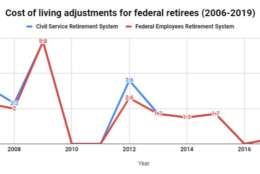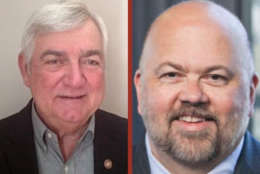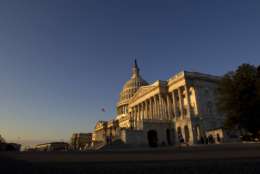CSRS
-
Federal retirees and folks who get Social Security benefits may be among the few people in the country who get anxious when crude oil prices drop.
April 04, 2019 -
Benefits expert Tammy Flanagan, will be Mike Causey's guest today on Your Turn, airing 10 a.m. EDT, streaming on www.federalnewsnetwork.com or on 1500 AM in the Washington, D.C., area.
April 03, 2019 -
Some politicians have been after the Federal Employees Retirement System since it replaced the more generous Civil Service Retirement System program during the Reagan administration.
March 27, 2019 -
John Grobe, president of Federal Career Experts, specializes in prepping feds for retirement and is Mike Causey's guest on today's episode of Your Turn.
March 20, 2019 -
The annual winter presentation of the president's budget is akin to other ancient rituals which have since lost their original purpose.
March 14, 2019 -
Ever since the late 1990s some experts on government matters have been predicting a tidal wave of retirements from key federal agencies. That sparked fears of a brain drain as experienced feds fled their jobs heading for the shuffle-board courts.
March 12, 2019 -
The Trump administration for the third consecutive year has recommended cuts to federal employee retirement and health benefits as part of its 2020 budget request.
March 11, 2019 -
Most of the House Republicans who repeatedly tried to cut costs in the massive FERS program are either gone from Congress or relegated by the 2016 midterm elections to minority status.
March 11, 2019 -
For federal workers the good news is that Congress approved a 1.9 percent raise for them despite the fact that the president wanted to freeze pay in 2019.
February 28, 2019 -
But if you don’t appreciate politicians trying to eliminate long-promised features of your Federal Employees Retirement System or Civil Service Retirement System packages fasten your seat belts.
February 25, 2019 -
If Uncle Sam kept a list of endangered workers, folks under the old Civil Service Retirement System would be at the top. Less than six of every 100 workers still on the payroll are under the system that was phased out in the mid 1980s.
February 21, 2019 -
At least five bills have been reintroduced in the 116th Congress by incumbent lawmakers. And as the fog of last month's partial government shutdown clears, it's possible more bills have or will resurface.
February 21, 2019 -
Folks under the old Civil Service Retirement System, like people who get Social Security benefits, are protected from inflation. But most people on the federal pay roll are under FERS.
February 21, 2019 -
Regardless of age, experience, grade, location or job federal workers today fall into one of two categories, neither of which is good.
January 09, 2019 -
Could the likelihood of a government shutdown or a coast-to-coast barrier depend on what we the U.S. decide to call it? Some so-called Washington experts think it might work.
December 12, 2018














